Practice & Programs
Programs
Baltimore City Mental Health Programs
Program Staff - School Mental Health Program:
- Nancy Lever, PhD, Executive Director
- Jennifer Cox, LCSW-C, Director
- Nikita Parson, LCSW-C, Associate Director
- Rikki Spiegler, LCSW-C, Assistant Director
- Sharon Hoover, PhD, Senior Faculty Advisor
- Brittany Patterson, PhD, Faculty Advisor
- Tiffany Beason, PhD, Faculty Advisor
- Ellie Davis, Managing Director
The SMHP staff is a dedicated and close knit interdisciplinary team comprised of psychologists, social workers, professional counselors, psychiatrists, and trainees guided by youth, families and school staff.
Program Staff - Center for Infant Study/Secure Start:
- Kay Connors, LCSW-C, Executive Director
- Bri Fellows, LCSW-C, Program Director
- Antonia Girard, PsyD, Psychologist
Program Partners:
Behavioral Health Systems Baltimore; Baltimore City Schools
Program Description:
The School Mental Health Program (SMHP) team is dedicated to removing barriers to learning and creating a safe and nurturing learning environment in which students and families are able to rapidly access a range of culturally sensitive and effective prevention and therapeutic services that promote wellness and academic success. The SMHP aims to accomplish this by positively impacting schools by way of focusing on building the schools’ capacity to support social emotional wellness through strengthening the school climate and teachers/administrators’ abilities to serve students with mental health concerns, as well as offering effective family and child-centered prevention, intervention, and treatment services to students and families.
The SMHP is committed to integrating evidence-based practices (EBP’s) into three tiers of prevention, with a strong focus on school-family-community partnerships. Additionally the SMHP has a growing telepsychiatry program that is supported by the University of Maryland, School of Medicine, Department of Psychiatry, and the National Center for School Mental Health. This program helps to address the national shortage of child and adolescent psychiatrists while also increasing access to psychiatrists, reducing barriers to care and developing a workforce of 21st Century providers who are trained and engaged in the use of telemental health. Learn more.
The University of Maryland Center for Infant Study/School Mental Health Program works to provide services for children ages 0-21. Our Center for Infant Study (CIS) specializes in children ages 0-5 while our School Mental Health Program focuses on children and adolescents ages 6-21. The CIS/SMH Program is an outpatient mental health center that been CARF accredited since 2016.
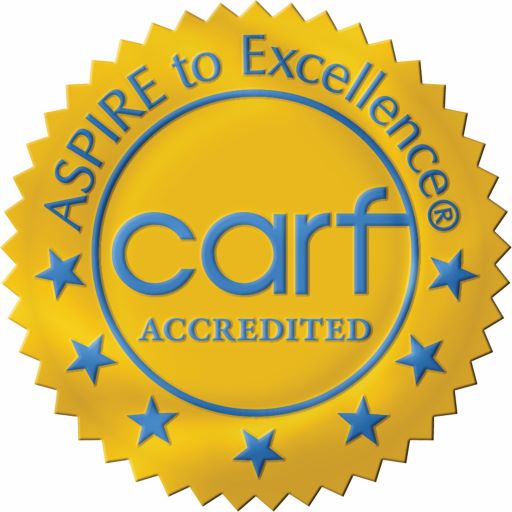
View our most recent CARF Accreditation Report, our Strategic Plan One-Pager, and the CIS/SMH Program Performance Analysis.
Mission:
The mission of the Center for Infant Study/School Mental Health (CIS/SMH) Program is to offer a full continuum of high quality, comprehensive mental health service to children, youth, and their families from birth through age 21. The CIS/SMH Program is committed to providing person- and family-centered mental health services that are evidence-supported and sensitive to the cultural needs of each client and family. The CIS/SMH Program is committed to training medical students, psychiatrists, psychologists, social workers, nurses, counselors, early childhood providers and educators through practicums, coursework, and workforce development efforts. The CIS/SMH Program supports innovation in the field of early childhood mental health and school mental health through evidence-based training, outcomes-based research, and program and policy activities.
Core Values:
Care and Service that is High-Quality
- We deliver care that this client and family centered by highly qualified social workers, professional counselors, psychiatrists, psychologists, and trainees.
- We partner with clients, families, and community providers to provide high-quality, easily accessible, early childhood through adolescent mental health services in clinic and school settings, with a particular focus on serving youth and families in Baltimore City.
- We are committed to using the best and safest technology available to the program.
- We serve as a resource for the local community and state by providing content expertise and resources.
Respect, Integrity, and Accountability
- We value each other and hold ourselves accountable for acting ethically and transparently using compassion and empathy.
- We respect and acknowledge differences and strive to provide culturally responsive care
- We hold ourselves accountable through outcomes and feedback from our clients, staff, stakeholders, and regulators.
Equity and Justice
- We embrace and are committed to diversity, and value inclusive and just communities.
- We oppose racism and oppression in all its forms.
- We acknowledge and work to advocate for clients and caregivers impacted by inequities.
Discovery and Innovation
- We imagine and explore new and improved ways to accomplish core aspects of our mission: clinical care, service, education, and research.
- We learn from applied research that will help improve engagement in and success of clinical interventions and services.
Sustainability, Well-Being, and Training
- We care about the social, emotional, and physical welfare of our staff and those we serve, as well as our local, global, and University communities.
- We are committed to training future generations of mental health providers in effective interventions and engagement, and we are dedicated to inspiring a passion for serving others
- We are committed to partnering with and training with other child-serving providers and acknowledge their continuing impact.
- We are committed to understanding issues related to accurate identification of mental health needs, appropriate referral to our care, cultural responsiveness to those in our care, and prevention/intervention strategies to promote positive youth mental health and wellness.
- We acknowledge the importance of proactively addressing mental health needs prior to illness and the impact illness on those we serve as well as our staff.
Referrals:
The CIS/SMH Programs accept referrals from a variety of sources such as teachers, principals, school staff, peer, self-referral, caregivers, CPS, BCAC, primary care providers and developmental pediatricians. For school-based services, please check the link below to see if there is a UM provider at your child’s school. View our School Mental Health Program Staff and Schools.
To make a referral, please contact one of our program directors to connect with your child’s school or call, 410-328-3522.
Business Practices, Funders, and Fees:
The University of Maryland CIS/SMH Program is committed to our clients, family, personal and stakeholders and is transparent regarding financial and performance audits. The CIS/SMH Program receives funding from Baltimore City Schools, Behavioral Health Systems, Fee-for-service work, and a variety of grants. If you have questions about our performance, please do not hesitate to reach out to our Program Directors.
Our program accepts medical assistance as well as a variety of insurances. Please check with your provider regarding insurances accepted as it varies by provider. Sliding fee scale available. All of our billing and insurance verifications are handled by Medical Billing Service, LLC. No one will be denied access to services due to inability to pay and there is a discounted/sliding fee schedule, our sliding fee discount application and policy are available by request or can be accessed from the links below.
The CIS/SMH Program is a program under the University of Maryland, Baltimore and all financial reports, statements and audits are available on the UMB website, where you may also find our financial policies and procedures.
Requests for Accommodations:
If you require specific accommodations for our services, they can be made by notifying your clinician or by contacting the Program Director directly at 410-328-3522. Please be sure to mention the location of your services.
Here's What You're Saying (Satisfaction Survey Results):
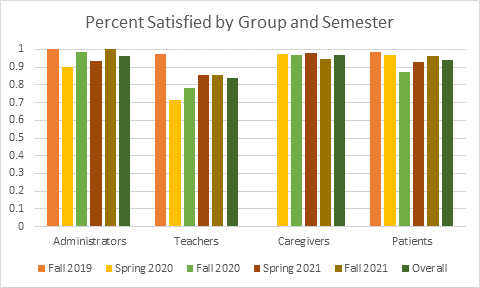
We Welcome Your Feedback:
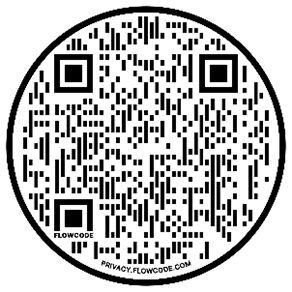
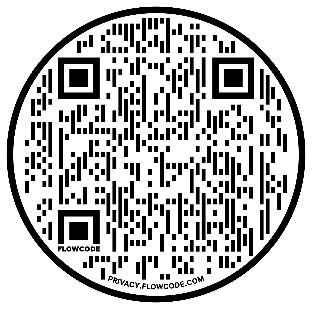


School Leader, Teacher, Staff, and Stakeholder Survey
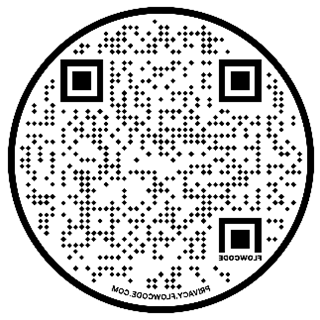
Complaint and Grievance Policy:
It is our hope that all complaints and grievances are resolved through communication with the primary clinician. However, if this is not possible, grievances should be directed to the Program and/or Executive Director to resolve the grievance:
Nancy Lever, PhD, University of Maryland School Mental Health Program, Executive Director
- Phone: 410-706-4974
- Email: NLever@som.umaryland.edu
Jennifer Cox, LCSW-C, University of Maryland School Mental Health Program, Program Director
- Phone: 443-695-4342
- Email: JfCox@som.umaryland.edu
Bri Fellows, LCSW-C, University of Maryland CIS, Program Director
- Email: Bfellows@som.umaryland.edu
Program Director(s) will respond to all grievances and inform each family of the outcome. If revisions are made to the care plan because of a grievance or to this grievance policy, families will be notified immediately. Any unresolved grievances will additionally be reported to program funders, including BHSB.
If you feel your grievance is not being addressed you may contact Faculty Physicians Inc. (FPI), by phone, 667-214-1492 on their “We Care Line’ or by email, wecare@fpi.umaryland.edu. We appreciate and take seriously all concerns of our clients and families. Actions will not result in retaliation or a barrier to service.
Find additional directions to report a grievance here.
Other Services You May Find Helpful/Referrals:
- Walter P. Carter Center
- Sheppard Pratt
- Behavioral Health Systems Baltimore
- Preschool Clinical Program at The Johns Hopkins Bayview Medical Center
- Children's Mental Health Center at The Johns Hopkins Hospital - Preschool Clinical
Crisis Information/Hotlines:
Emergency or Urgent Care: In case of an emergency please use your local emergency system. Crisis intervention services will be provided to clients who need to be seen on an emergent or crisis-oriented basis. If your child presents or reports risk to themselves or others, clinicians will respond appropriately following all agency clinical procedures and mandated reporter laws.
We are committed to supporting your efforts to help your child stay safe and develop their full potential. When managing potential crises, please keep the following guidelines in mind:
- Be prepared. Talk with your clinician about ways to prevent crises and support your family. It helps to plan ahead.
- Keep in touch, schedule and keep regular mental health treatment appointments. Call ahead to reschedule. Treatment works if you use it regularly.
- If your child is taking medication, keep track of when you need a refill. Please review our Refill Policy. All requests for refills should be called in by Thursday at noon.
- Keep a journal about your concerns including steps you have taken to assist your family to be safe and healthy.
- Be ready to call for help. Enlist help from family and friends. Know your community resources.
- Take Action
- Stay calm.
- Reduce noise and stressors (i.e. turn off T.V., loud music, etc.)
- Make sure all children in your care are safe.
- Don’t threaten.
- Get help if needed.
Emergency Numbers: For life-threatening emergencies please use 911.
Psychiatric Urgent Care:
- Anne Arundel County: (410) 768-5522
- Baltimore City: (410) 433-5175
- Baltimore County: (410) 931-2214
- Caroline, Dorchester, Kent, Queen's Anne, and Talbot Counties: (410) 820-5600
- Cecil County: (888) 407-8018
- Calvert County: (410) 535-1121 or (301) 855-1075, or for teens: (410) 257-2216
- Carroll County: 1 (800) 422-0009
- Frederick County: 211 or (301) 662-2255
- Harford County: (410) 638-5248, or for pager: (410) 588-1017
- Howard County: (410) 531-6677
- Maryland Youth Crisis Hotline: 1 (800) 422-0009
- Montgomery County: (240) 777-4000
- Prince George's County: (301) 927-4500 or (301) 429-2185 or (301) 731-1203
- Sheppard Pratt Urgent Assessments: (410) 938-4357
- Sheppard Pratt Scheduled Crisis Intervention Program: (410) 938-5302
- Worcester County: 911
For Child Protection Emergencies contact the local child protection team where the maltreatment occurred:
- Baltimore City: (410) 361-2235
- Baltimore County: (410) 853-3000
- Anne Arundel: (410) 421-8400
- Howard County: (410) 872-4203
- After hours: (410) 313-2929
- Carroll County: (410) 386-3434
- Baltimore area: (410) 876-2190
Additional resources:
- The Family Tree: Family Stress Line: 1 (800) 243-7337
- House of Ruth 24 Hotline: Domestic Violence: (410) 889-7884
- Maryland Youth Crisis Hotline: 1 (800) 422-0009
- Poison Control: 1 (800) 222-1222
Additional Supports:
Peer Support
LGBTQ Mental Health Resources
- Trans Lifeline: Trans-led resource, peer support, and emergency counseling hotline
- TrevorLifeline/Chat/Text: 24/7 support via phone, text, or online instant messaging
- Mental Health America’s LGBTQ+ Communities and Mental Health
- Tips for Parents of LGBTQ Youth
- National Queer and Trans Therapists of Color
Local Advocacy Groups
- NAMI Baltimore
- Maryland Coalition of Families
- Patients and families may be referred to the Maryland Coalition of Families, NAMI, CHADD, Al-Anon, Mental Health Association of Maryland, SFCR, etc.
Self-help Groups
Grief
Child Loss
Legal Support
Contact:
Ages 0-5: Brijan Fellows bfellow@som.umaryland.edu 410-328-3522
Ages 6-21: Jennifer Cox jfcox@som.umaryland.edu 443-695-4342
Location:
Center for Infant Study
701 W Pratt Street
Baltimore, MD 21201
National Center for School Mental Health / University of Maryland School Mental Health Program
737 W Lombard Street
Baltimore, MD 21201
Prince George's School Mental Health Initiative
Program Staff:
- Dana Cunningham, PhD, Program Director
Program Partners:
Maryland State Department of Education and Prince George’s County Public Schools
Program Description:
The goal of the PGSMHI is to provide an integrated model of mental health services in the least restrictive setting to students with emotional/behavioral disorders in Prince George’s County Public Schools who are at risk of attending non-public special education programs. The PGSMHI staff, comprised of clinicians and case managers, implement a full continuum of evidenced-based practices, provide intensive family support, and enhance staff competency through on-going educational training to support students’ behavioral and academic success. The key components of the PGSMHI focus on developing supportive relationships with youth and their families, decreasing risk factors and stressors, and enhancing strengths and protective factors through relevant interventions.
Our team from the Prince George's School Mental Health Initiative have compiled a list of resources to support students and families during the COVID-19 crisis: COVID Resources for Families
Contact:
Dana Cunningham, dcunning@som.umaryland.edu
Supportive and Nurturing Learning Environments: Restorative Practices and Youth Mental Health First Aid in Baltimore County Public Schools
Program Staff:
- Sharon Hoover, Principal Investigator
- Lisa Selby, Project Manager
Program Partners:
- Baltimore County Public Schools
Program Description:
Supportive and Nurturing Learning Environments: Restorative Practices and Youth Mental Health First Aid in Baltimore County Public Schools is focused on providing consultation, coaching, professional learning, and technical assistance to Baltimore County Public Schools’ staff using evidence-based practices within a Multi-tiered System of Supports (MTSS). The project is focused on ensuring that students have access to social-emotional learning, mental health resources, and equitable education practices in schools.
The project manager coordinates a district-wide Restorative Practices training program and provides coaching and consultation around Restorative Practices to BCPS teachers and administrators. Additionally, Youth Mental Health First Aid is offered to all BCPS staff to provide training in the identification of mental health concerns in young people along with the resources to respond to these concerns.
Contact:
Lisa Selby, lselby@bcps.org
Practice
Expanding the SMHP FAMILY
Program Staff:
- Brittany Patterson, Principal Investigator
- Cindy Schaeffer, Co-Principal Investigator
- Jen Cox, Program Director
Program Partners:
- Broken Wall Church
- St. Luke's Youth Center
- Tree House Project
Funding Source:
- Maryland Community Health Resources Commission
Program Description:
Expanding the School Mental Health Program (SMHP) Focus on Access to Mental Health Interventions and Local Resources to Promote Youth-Family-School Well-Being (FAMILY) is part of the Blueprint for Maryland's Future. This project seeks to enhance the capacities of school-based stakeholders for supporting the growing mental health needs of youth by providing family education programming, implementing educator training, and bolstering universal interventions provided to youth and families during and after school hours.
Contact:
Brittany Patterson, bpatterson@som.umaryland.edu
Mental Health Literacy in Baltimore City Public Schools
Project Staff:
- Brittany Patterson, Principal Investigator
- Nancy Lever, Senior Faculty Advisor
- Jen Cox: Program Director
Funding Source:
Hearst Foundation
Project Description:
With higher rates of mental health challenges resulting from the pandemic, psychoeducational and skill-building curriculums in classrooms offer the opportunity to reach a larger number of students and to equip them with critical coping and problem-solving skills. The Baltimore City School Mental Health Program will implement a mental health literacy (MHL) curriculum to reduce stigma, increase mental health knowledge, and enhance students' coping capacities.
Contact:
Brittany Patterson, bpatterson@som.umaryland.edu
Telemental Health in Schools
Project Staff:
- Jennifer Cox, Director
- Nikita Parson, Associate Director
- Nancy Lever, Faculty Consultant
- Sharon Hoover, Faculty Consultant
- Dana Cunningham, Faculty Consultant
Funding Source:
Maryland Department of Health
Project Partners:
University of Maryland School Mental Health Program
Project Description:
The integration of telepsychiatry into school-based mental health has the potential to increase access to services and improve efficiency of service delivery. However, very few programs that focus on school-based telepsychiatry exist. The University of Maryland School Mental Health Program (SMHP) began providing mental health services in 1989. The SMHP currently provides universal mental health promotion, early identification, prevention and intervention services in 27 Baltimore City Public Schools. Since 2014 the SMHP has been a component of the UM Child and Adolescent Child Psychiatry Fellowship and has trained 2nd year psychiatry fellows in school mental health service provision. Psychiatry fellows are assigned to 2-3 school sites and work in partnership with school mental health clinicians to provide psychiatric services within a comprehensive, multi-tiered system of support. There are approximately 7 fellows and 20 clinicians who serve 27 schools. Fellows provide direct care psychiatry and support a comprehensive, multi-tiered system of mental health promotion, prevention and intervention supports via a blend of in-person and telepsychiatry. The SMHP has collected program evaluation data to inform quality improvement for many years. The current project is funded by the Maryland Department of Health to understand psychiatrists’ productivity, effectiveness, expectations and experiences providing school-based telepsychiatry in order to inform ongoing expansion and improvements of school telepsychiatry service models.
Contact:
Jen Cox, Jfcox@som.umaryland.edu
